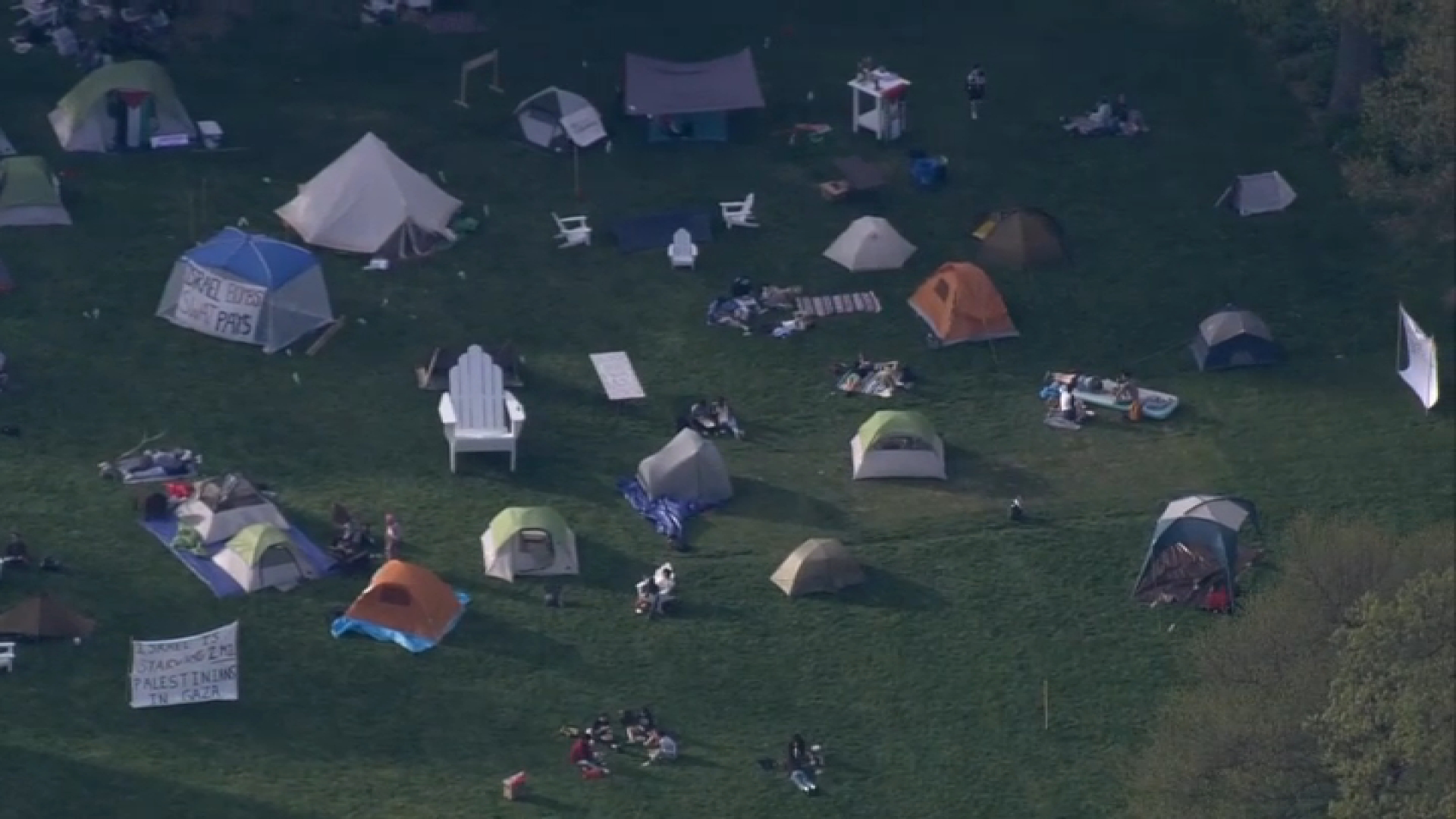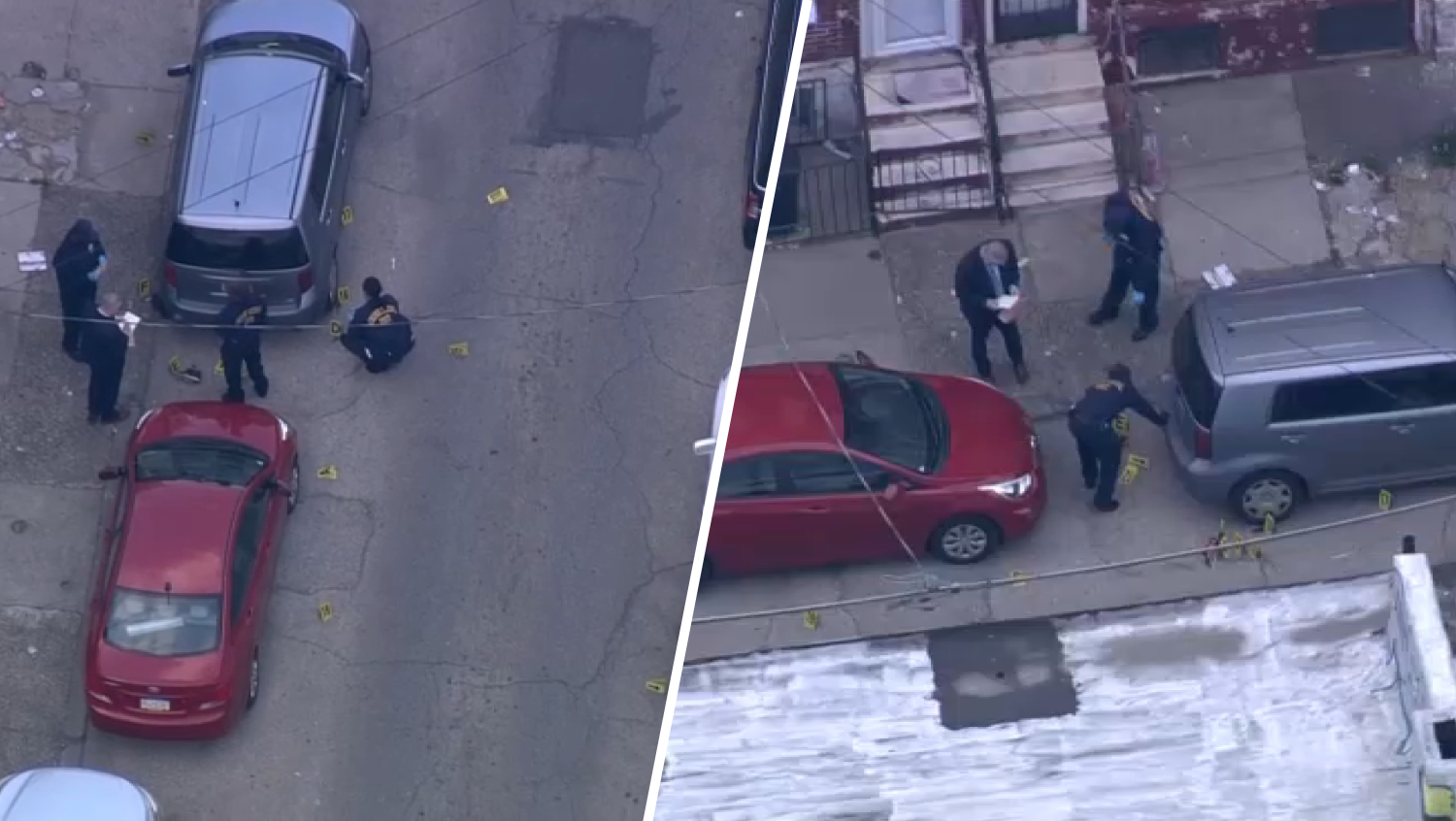Michael Lockhart was 12 years old when he stood stoically over the open gray coffin. He looked down at the body of his father, his namesake, known on the streets of West Philadelphia as MG, for "Major Gangsta," and wondered why he looked nothing like the man he knew. MG had been shot 22 times with an AK-47.
Everyone fell silent in the funeral home as Michael, his voice quivering, read a poem he had written for his dad:
What happens when the lights go off?
What happens when the wind blows and I have no jacket to keep me warm?
What happens when I feel down and you're not there to make me feel up?
What happens to me?
What happens when at night I open my eyes just to see you're not there?
Local
Breaking news and the stories that matter to your neighborhood.
I can feel you, but I just can't see, I just can't, so what happens?
In the next few years, Michael answered his own question. He started to live his father's life.
With a 9 mm Glock, Michael, along with his brother and a friend, robbed two groups of Temple University students.
No one in his family was particularly surprised.
Michael's father and three uncles served time in prison. His brother is locked up now. One of his uncles is serving life and recently confessed to another murder.
Like father, like son
Gun violence, drug dealing and imprisonment are often repeated from generation to generation, particularly on Philadelphia's toughest streets.
Almost 48 percent of all state prisoners nationally have a close family relative in jail, according to the latest statistics.
"In our family we call it the generational curse," Michael's mom, Yolanda Wallace, told the Philadelphia Daily News recently, sitting in her Strawberry Mansion rowhouse.
"It's from the bloodline," said Michael's grandmother Audrey Wallace, 68, who worked 30 years cleaning houses and is grateful she had more daughters than sons. "They're born with it. We need to come together as a people instead of killing each other."
Michael sat in her living room in North Philadelphia and nodded.
"If you're rich and you go to Harvard, your kid goes to Harvard," he said. "Here, if your daddy hustles, your son gonna grind."
But Michael now has decided that a life of bloodshed and prison stops with him.
He will not, he insisted, become his father.
"If I kept going, I probably would have been locked up for something way worse," he said.
"People use their childhood as an excuse. It's not an excuse," he said.
Michael's mom smiles when she hears his words.
"I believe that Mike will break the curse," she said.
Not that it's easy.
Michael sat on a ledge on Cecil B. Moore Avenue near 23rd Street recently, his head jerking back and forth to watch everyone who approached.
When asked if something was wrong, he replied, "When I'm here, it's hard not to have a gun."
After he was released last year from Glen Mills Schools, a reform school in Delaware County for lawbreaking kids, he said his mom and workers at the Philadelphia Anti-Drug/Anti-Violence Network helped make him believe he can break the cycle.
Michael, now 17, works as a landscaper for the city, earning $11.89 an hour, and speaks to groups about gun violence.
"I'll make it happen because I'm real, real, real determined," he said recently, sitting in his tidy bedroom with a couple of friends.
On a shelf near his window sits a brown urn with an angel on the front that Michael bought for $240. It contains his father's ashes.
His shoes are lined up in a neat row on a towel he'd placed on the floor. His comforter is a spotless white.
Trophies and medals for hockey, wrestling, soccer and football from his Glen Mills days are displayed in a corner. The view from his window is a collapsed house, next to an abandoned one.
"I don't want to lose anything I got," he said. "I'm only 17 and I got a job working for the city.
"If I go back to jail, it would be like I'm just like my dad."
It begins with a gun
The first gun Michael saw was stuffed under his dad's bed. He was 5 or 6 years old.
"I touched it," he recalled. "I didn't hold it. I came back every day to see it was there, just so I could touch it."
From the time he was a kid, he was fascinated with guns and their power. Once, when he was about 10, he pointed an AK-47 through the rails of his porch at a kid, right at his nose, because the boy had threatened to get a shotgun from his house. "He started crying," Michael said.
Michael, who is muscular and athletic with a quick, warm smile, discovered his father was a drug dealer when he was in kindergarten.
"I was sitting inside the car and I saw my dad give someone drugs and they gave him a bunch of money," he said. "I thought nothing of it."
Later, he heard relatives' stories that his father was a murderer. "He shot seven people because they shot at the neighbors' house thinking it was ours," Michael said.
"He's my dad. I understand he did stuff, stuff he had to do."
Michael lived the first eight years of his life with his dad and stepgranddad, who had a successful roofing business. He affectionately called his grandfather, who died shortly after Michael's dad, "Pop Pop."
Michael's mom, who has five sons, said that at the time she thought it best he not live with her because she was unemployed and involved in a volatile relationship that forced her to move from house to house.
"I didn't want to drag my kids from pillar to post," she said. "And Mike's dad was never abusive to me or to him."
She always worried, however, that Michael could get shot, given his dad's blood-for-blood mantra.
"To be honest, I thought my son wouldn't live past 12," Wallace said. "I just hoped (Pop Pop) would show him a different life."
Even though Michael's dad was in and out of prison, Michael adored him. "I thought my dad was the best," he said.
"He was an over-the-phone dad. He called me from prison every other day. He'd always remember my birthday. He told me to keep my grades up and I can't get in trouble because my grandpop's blood pressure would go up," he said.
But there were bad memories, too.
"Once our house got shot up because my uncle had robbed a drug house," Michael said. He was 6 or 7 at the time.
"We were in the living room watching movies when I heard one shot go off. I saw the windows blow out. Everything started breaking. I heard stuff falling off the walls. The banister had a bullet in it," he said.
His dad's friend, who they called Uncle Tiger, pushed Michael and his aunt, Samantha, to the floor. He lay on top of them to shield them from bullets.
Another time, a SWAT team burst into the house looking for another uncle who had killed two people.
"Not a lot of kids go through as much as he's been through," said Michael's friend, Kenyatta Spruill.
"You shouldn't have to see all that as a kid."
A bullet as a reminder
Michael took a nose dive after his father's death.
"That sweet little boy, the one I knew, I didn't know who he was anymore," said his mom, with whom Michael and his brother, Terron, have lived with since Michael was 8.
"He was sneaking out of the house all the time. He hung with the wrong people. I felt like I was looking at his dad's lifestyle all over again," said Wallace, who works full time at a day-care center.
She and her mother, Audrey, tried talking with Michael.
"When you see stuff that ain't right, you need to run from it, not to it," Audrey Wallace told him.
Michael wasn't ready to listen.
Robbing the Temple University students was a spur of the moment thing. Late one afternoon in April 2010, he and his older brother, Carlos, got guns from relatives of friends. They met up with one of Michael's friends, who also had a gun.
They headed out at 2 the next morning.
"I'm gonna go jam (rob) someone," Michael remembered Carlos saying.
They found two students on French Street and held them up, but the students had nothing, and they left.
Minutes later, they spotted five students on 15th Street near Dauphin. Michael kept the 9 mm Glock in his pants, but Carlos pulled out his Ruger. Carlos did the talking and cocked the gun at one of the students. A black Ford Taurus inched up beside them, Michael said, and Carlos pointed his gun at the driver.
Turned out it was an off-duty police detective.
The boys ran through a lot and then slowed to a walk to avoid being spotted. Michael "roofed" his gun, meaning he tossed the weapon on a rowhouse roof.
But the cops spotted them and the three boys were arrested. Carlos is still serving a 3 1/2- to 7-year sentence. Michael pleaded guilty to criminal conspiracy and, after spending about eight months at the Philadelphia Industrial Correctional Center, he was placed on house arrest.
The day before Michael was scheduled to go to court to get off house arrest, he tucked two guns in his brown book bag and took them to Frederick Douglass Charter School, where he was an eighth-grader.
He'd gotten the guns from some kids who had stolen his dirt bike while he was locked up. They cut a deal. They would keep the dirt bike and give Michael two Glocks. Michael didn't want to leave the guns at home, for fear one of his cousins would take them.
But a girl at school happened to open Michael's book bag, saw a gun and told her teacher.
Michael was sent to Glen Mills Schools, where he earned a GED.
While there, Michael wrote a letter to his mom:
"I'm sorry I disappointed you. I know you expected better from your son. I don't want you to think it's your fault. It is a decision I made on my own... It's not your fault."
She cried when she read it. "I blamed myself," said Wallace, 41. "I felt like if they'd been with me all those years, they wouldn't have been in trouble."
Since Michael's release last August, he has worked with the Department of Behavioral Health to speak with groups of peers about how to prevent gun violence. He wants to someday enter the Army.
"Mike is strong," his mom said. "I'm glad his life is on a path I always wanted for him."
Just last week, her heart leaped to her throat when she spotted a bullet on the window sill in Michael's bedroom.
"Mom, it's not what you think," Michael told her.
Michael had kept one bullet from the 9 mm Glock he'd taken to school.
"I keep it to remind me what I got locked up for. I keep it to remind me of where I've been.
"It's a negative. And I'm turning it into a positive."



